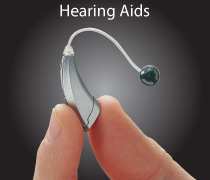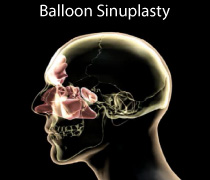Burning Mouth Syndrome
Burning mouth syndrome, also known as glossodynia, refers to pain or a hot, burning sensation in the mouth or oral cavity.
Patients usually experience it on the tongue, but some patients feel burning in multiple areas of the mouth, including the lips, top, or bottom of the mouth. As many as 15 percent of the population can experience symptoms at some point in their life, but less than one percent of patients report continuous burning symptoms. It is more common in females and in middle-aged or older patients. Typically, the oral cavity appears normal.
What Are the Symptoms of Burning Mouth Syndrome?
Patients with burning mouth syndrome may experience symptoms including:
- Burning, painful sensation in the mouth (any location)
- Often on both sides (bilateral)
- Dry mouth (occasionally)
- Taste changes (occasionally)
- Tingling or numbness in the mouth (occasionally)
What Causes Burning Mouth Syndrome?
The cause of primary burning mouth syndrome is unknown but thought to be due to an issue with the nerves, called a neuropathy. There may be a hormonal link as almost 90 percent of patients are post-menopausal women. However, the exact link between estrogen and burning mouth syndrome is unknown. Patients with burning mouth syndrome are also more likely to have a psychiatric comorbidity, such as depression or anxiety, but this is not thought to be the cause of the disorder.
It is important to rule out other causes of mouth pain, such as thrush, vitamin deficiencies, medications, and growths or lesions. Some patients with burning in the mouth have a vitamin deficiency so your doctor may recommend lab work for certain vitamins, such as vitamin B, folate, iron, and zinc. Some blood pressure medications, antiretrovirals, and antidepressants can cause oral pain.
Other diseases like oral lichen planus and Sjogren’s disease, which are autoimmune diseases, may be confused with burning mouth syndrome. Uncontrolled diabetes, thyroid problems, and reflux may also worsen burning mouth sensations. It can also be caused by Ill-fitting dentures or teeth grinding. Oral allergies from foods, dental work, or oral care products can also cause burning in the mouth.
What Are the Treatment Options?
Treatment depends on whether a secondary cause is found. Thrush should be treated with antifungal medication, and any vitamin deficiency should be treated with vitamin supplementation. If a medication is suspected to be the cause, an alternative medication may be recommended. However, never stop a medication without consulting with your prescribing doctor first.
Your ENT (ear, nose, and throat) specialist, or otolaryngologist, may need to work with your primary care provider to treat any uncontrolled diabetes or thyroid issues. Switching oral care products can help some patients, and food avoidance may be recommended if a food allergy is suspected. Your doctor may recommend seeing a dentist to make sure there are no issues with dentures or teeth grinding. Reflux medications may be recommended. If dry mouth syndrome is the cause, there are many different treatment options.
Lifestyle changes can help alleviate some of the symptoms of burning mouth syndrome, such as reducing or eliminating alcohol and tobacco products. Certain foods such as spicy or acidic foods can make symptoms worse and should be avoided. Frequent sips of cold water can also help.
If no underlying cause is found, there are some medications that have been found to be effective. Clonazepam, which helps depress the nervous system, is often a “first-line” therapy. Antidepressants, such as paroxetine or sertraline, and gabapentin, a medication that also depresses the nervous system, are sometimes used for burning mouth syndrome. There is disagreement in medical literature if alpha-lipoic acid is beneficial for burning mouth syndrome, but some patients have found it to be beneficial. Certain topical medications such as anesthetics, anti-inflammatory medications, sucralfate, and capsaicin have been used with varying success in patients and may be recommend in certain patients.
Even though there is a hormonal link to burning mouth syndrome, hormone replacement therapy is usually not recommended. Cognitive behavioral therapy or psychotherapy has been shown to be very beneficial in patients with burning mouth syndrome. Your doctor may recommend a consultation with a psychiatrist in certain cases. Fortunately, data suggest that up to 50 percent of patients have some resolution of symptoms without any treatment within a few years of diagnosis.
What Questions Should I Ask My Doctor?
- Is there a secondary cause for my burning mouth?
- Will I need lab work?
- What treatment options are available for my situation?
- What are the risk and benefits of using medications to treat my burning mouth?
- Would you recommend cognitive behavior therapy or psychotherapy for my situation?
Bronchitis
Bronchitis is a condition when the bronchi, the passages that carry air from the windpipe to and from the lungs, become inflamed.
Bronchitis is a common lower respiratory tract condition, often following a common cold and appearing in children less than five years of age. In many cases, bronchitis is acute, or short-lasting (less than three weeks) and self-limiting. Sometimes it can be chronic, persisting for a longer period of time especially in smokers, the elderly, those with chronic diseases, or those with a compromised or weakened immune system.
What Are the Symptoms of Bronchitis?
Symptoms of bronchitis may include:
- Cough with excessive mucus and phlegm (which may be colored)
- Runny nose
- Sore throat
- Headaches and generalized aches
- Fatigue and tiredness
- Mild fever
- Shortness of breath and wheezing
Symptoms of chronic bronchitis include:
- Cough
- Wheezing
- Shortness of breath and chest tightness
- Recurrent, acute chest infection
More serious symptoms requiring immediate attention include:
- Severe, prolonged cough
- High fever lasting more than three days
- Mucus that is streaked with blood
- Rapid breathing or chest pain
- Drowsiness or confusion
What Causes Bronchitis?
In acute bronchitis, inflammation is usually due to an infection by viruses or bacteria. The same viruses that cause the common cold and upper respiratory tract infection are usually responsible. Infection is transmitted by inhaling the virus suspended in airborne droplets or by direct contact with infected surfaces and placing the hands near the mouth or nose. Irritation and inflammation of the bronchial passage then creates excessive production of mucous. Bronchitis can become chronic due to exposure to environmental irritants, such as smoke, chemical fumes, dust, and pollution.
What Are the Treatment Options?
For acute or short-lasting bronchitis, typical treatment recommendations include resting in bed, drinking plenty of fluids and staying hydrated, and symptomatic treatment for fever using acetaminophen or ibuprofen. Bronchodilators, a type of medication that make breathing easier by relaxing the muscles in the lungs and widening the airways, and cough suppressants may sometimes be needed, although this is not recommended for children younger than six years of age. Antibiotics are not needed except in high-risk groups. If you smoke, you should stop.
For chronic or long-lasting bronchitis, certain lifestyle changes may help improve your condition, such as quitting smoking, using air purifiers at home, wearing protective gear in risky work environments, and avoiding pollution when possible. Medications, such as bronchodilators or mucolytics that make the mucus less thick and sticky and easier to cough up, may also be recommended. Antibiotics may be prescribed in cases with recurrent infections, or oxygen therapy.
Your physician may also want you to get a seasonal vaccination against the flu virus, and/or suggest chest physiotherapy and respiratory rehabilitation from a specialist.
What Questions Should I Ask My Doctor?
- Will you need to perform any diagnostic tests?
- Is it normal for my bronchitis to continue more than one week?
- Can I infect my family or coworkers with bronchitis?
- Are there medicines or antibiotics that might help my condition?
- What if I am a smoker, should I quit?
Ankyloglossia (Tongue-tie)
Ankyloglossia, which is also referred to as tongue-tie, is a condition where the tongue cannot move normally because it is attached to the floor of the mouth by the frenulum, which is too tight.
The lingual frenulum is the band of tissue that attaches the undersurface of your tongue to the bottom part of the mouth. Adequate tongue movement is necessary for swallowing and speech. When tongue movement is restricted, evaluation by an ENT (ear, nose, and throat) specialist, or otolaryngologist, may be necessary to check for ankyloglossia or other conditions that can affect oral and tongue function. In infants and children, ankyloglossia can sometimes cause breastfeeding and speech problems. Mild restrictions of tongue movement may not cause any speech or swallowing difficulties.
In recent years, the number of infants and children being diagnosed with and undergoing treatment for ankyloglossia has been on the rise as the condition has become more known. However, high-quality research on ankyloglossia is limited, and currently there is controversy on this topic. There are two types of ankyloglossia commonly described: anterior (when the frenulum inserts farther out toward the tip of the tongue) and posterior ankyloglossia (when the frenulum is widened at the insertion of the tongue into the floor of the mouth). Experts have failed to reach agreement on a formal classification system and management strategies. This highlights the need for individual evaluation and treatment discussions based on each patient’s circumstances. Ankyloglossia is usually identified from infancy through childhood. Some infants with ankyloglossia may have problems breastfeeding, but there are many other causes of latching difficulty that need to be considered.
The typical treatment of symptomatic ankyloglossia is a frenotomy, a surgery that involves cutting the band of tissue between the tongue and floor of mouth to release the tongue and help it move more freely. Not all patients with ankyloglossia require or would benefit from surgery, so it is critical that each patient is evaluated based on their individual symptoms to avoid unnecessary surgery. For example, an infant who has a frenulum that attaches farther out on the tongue but is feeding well does not necessarily require surgery. See the “What Are the Treatment Options?” section for more details.
What are the Symptoms of Ankyloglossia?
Symptoms of ankyloglossia may include:
- Nipple pain or irritation when breastfeeding experienced by mothers of newborn infants
- Problems latching on to the nipple during feeding experienced by infants
Ankyloglossia does not cause sleep apnea or snoring and does not typically affect speech, but it can occasionally cause problems with articulation in school-aged children. In older children and adolescents, ankyloglossia can cause social/mechanical issues including difficulty licking, difficulty keeping teeth clean, and a sense of social embarrassment. Adults with ankyloglossia may have difficulty cleaning their teeth with their tongue and problems playing wind instruments.
What Causes Ankyloglossia?
A tight lingual frenulum can cause ankyloglossia by limiting the motion of the tongue. In some cases, this band of tissue inserts too far out toward the tip of the tongue or is widened at the back of the tongue, causing problems with tongue motion. While the exact cause of ankyloglossia is still unknown, there tends to be a higher number of males with the diagnosis and is occasionally present in multiple family members. Ankyloglossia has also been associated with other genetic syndromes.
What Are the Treatment Options?
When considering treatment options for ankyloglossia and breastfeeding difficulty, it is important to remember that there is no one-size-fits-all solution. Factors such as patient age, types of symptoms experienced, other medical conditions, and surgical risks all affect the decision process between you and your doctor. Successful nonsurgical options focus on symptom management, such as working with a breastfeeding specialist on adaptive positioning and assistive devices in infants, or working with a speech therapist for articulation improvement in children.
If nonsurgical interventions do not resolve the problem or ankyloglossia is moderate to severe, a lingual frenotomy may be recommended. The procedure involves cutting the restricted frenulum with scissors, laser, or cautery device depending on the preference of the treating physician. The frenulum is divided until mobility is improved. In young infants, the procedure is often done in the doctor’s office, while older children may require anesthesia. More severe cases may require a frenuloplasty.
While many infants benefit from frenotomy, not all infants with ankyloglossia experience symptoms or require any intervention. Also, frenotomy does not resolve or improve symptoms in all patients. A few rare risks of frenotomy may include bleeding, infection, scarring, salivary duct injury, and airway obstruction. Your doctor should understand the multiple factors than can impact successful breastfeeding. An ENT specialist, speech language pathologist, lactation consultant, and other breastfeeding specialists may be needed.
What Questions Should I Ask My Doctor?
- Are there any other factors, besides tongue-tie, that may be impacting breastfeeding in my child?
- Are there nonsurgical options available to help with breastfeeding?
- Is a frenotomy necessary?
- What if ankyloglossia is not the cause of the breastfeeding difficulty?
- When is the best time for a frenotomy to be performed?
- What are the risks of frenotomy for my child?
- Does my child have any conditions that that may increase the risks associated with having a frenotomy?
- Will my medical insurance cover this procedure?
Dysgeusia
Dysgeusia is a condition where a person’s perception of taste is altered; everything seems sweet, sour, bitter, or metallic.
Taste disorders are common in adults. A study performed on adults in the United States indicated that up to 17 percent of those tested had some impairment in taste. Impaired taste can take many forms, including:
- Hypogeusia, which is a reduced or diminished sense of taste
- Ageusia, which is a complete loss of taste
- Aliageusia, when a typically pleasant-tasting food or drink begins to taste unpleasant
- Phantogeusia, which refers to tasting something that is not actually there, or hallucinating a particular taste
The tongue and throat have many taste receptors. Three different nerves contribute to the sensation of taste depending on where in the mouth the taste receptors are located. The front of the tongue is innervated, or supplied, by cranial nerve VII, called the facial nerve, through the chorda tympani; the back part of the tongue is innervated by cranial nerve IX, called the glossopharyngeal nerve; and the palate and throat are innervated by cranial nerve X, called the vagus nerve.
Completely losing taste due to injury of a nerve is rare since several nerves are involved. What some people consider a “taste,” such as “hot and spicy” or “chemical,” may be detected through pain and other receptors working through a completely different nerve, cranial nerve V, called the trigeminal nerve. There are even some taste receptors in the nose, but doctors are still figuring out exactly what role they play.
Humans can detect five different tastes: sweet, salty, bitter, sour, and savory, or umami. It is important to recognize the difference between taste and flavor. Flavor is a multisensory experience that combines both the smell and taste of foods and drinks. While eating, the smell of food is detected through both the front of the nose and the back of the throat. Depending on the path the smell takes, it can have a different effect. When people lose their sense of smell, they often complain of a loss of taste but what they really mean is that they have lost that combination of smell and taste, or flavor.
What are the Symptoms of Dysgeusia?
The symptoms of dysgeusia can include:
- Food has lost its characteristic sweetness or saltiness
- Foods that used to taste good now taste bad (sour or rotten)
- Foods taste metallic
- A taste is present despite not eating anything
What Causes Dysgeusia?
Taste disorders are common in adults and can be caused by several factors, such as:
Infection—Bacterial, viral, or fungal infections of the teeth or gums, mouth, and throat can cause swelling, reduce blood flow to taste buds, and/or produce chemicals that alter taste. Some genetic disorders can also make some people crave sweet foods, which can then lead to dental infections that can cause even more taste issues.
Inflammation—Swelling of the tongue can cause the taste pores on it to close. This can sometimes indicate vitamin deficiencies, such as lack of B12.
Vitamin or mineral deficiencies—Deficiencies in the B vitamins, especially B12, as well as certain minerals like zinc have been associated with loss of taste. Supplements can usually reverse this.
Dry mouth—Dry mouth, or xerostomia, can be a result of certain diseases, like Sjogren’s syndrome where the body attacks its only saliva glands, common medications such as water pills, or diuretics, or from radiation therapy for cancer. Without adequate amount of saliva, food may not dissolve enough to stimulate the taste receptors.
Medication side effects—A variety of medications can cause taste issues. Common ones include angiotensin-converting-enzyme (ACE) inhibitors such as lisinopril or captopril; antibiotics such as amoxicillin, clarithromycin, and metronidazole; diuretics such as acetazolamide and hydrochlorathiazide; and chemotherapy agents, such as bleomycin and carbo/cisplatin.
Nerve damage or trauma—The nerve that supplies the front part of the tongue travels through the ear and splits off from the facial nerve. As a result, Bell’s palsy and some ear surgeries can cause a loss of taste. Also, any injury to the other nerves that are responsible for taste due to trauma or surgery in the neck may also cause this problem.
Neurologic disorders—As seen with loss of smell, certain neurologic disorders such as multiple sclerosis, Alzheimer’s disease, and Parkinson’s disease have been associated with decreased taste.
Metabolic disorders—Kidney disease, diabetes, and hypothyroidism can all cause taste disturbances that can be reversed when treated.
Tobacco use—Active chemicals in tobacco as well as the changes that take place on the surface of the tongue and throat from tobacco use can change the perception of taste.
Acid reflux or GERD—Stomach acid and stomach enzymes can affect how well the taste buds work. Often, people with acid reflux or GERD complain of a “brackish” or sour taste.
Aging—The sense of taste can decrease with age, although this is less common than the loss of smell.
What Are the Treatment Options?
The treatment options for an impaired sense of taste depend on the exact cause for the dysgeusia or hypogeusia. With mineral or vitamin deficiencies, simply supplementing with a multi- or specific vitamin (B12, B-complex, and zinc) may be helpful. If due to medications, switching to a different medication may help restore a normal sense of taste. Managing other disorders that can trigger loss of taste, such as diabetes, thyroid disorders, or kidney problems, may also lead to improvement.
Reducing or stopping smoking or other forms of tobacco use as well as managing acid reflux either with medications or dietary modifications cannot be overemphasized. Drinking plenty of water can also help with dry mouth due to Sjogren’s, radiation treatment, or age-related loss of taste.
What Questions Should I Ask My Doctor?
- Do I have a loss of taste or is it from a loss of smell?
- Could my medications be causing this?
- Could my impaired taste be a sign of some other disease?
- Are there supplements that might help?
- What other things can I do to help improve my sense of taste?












